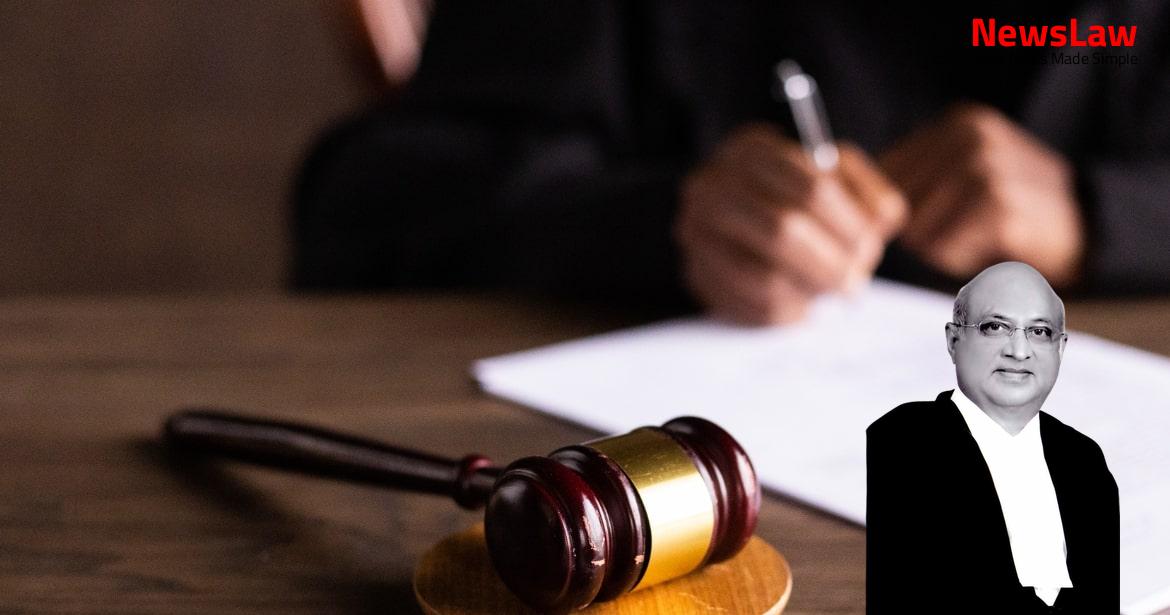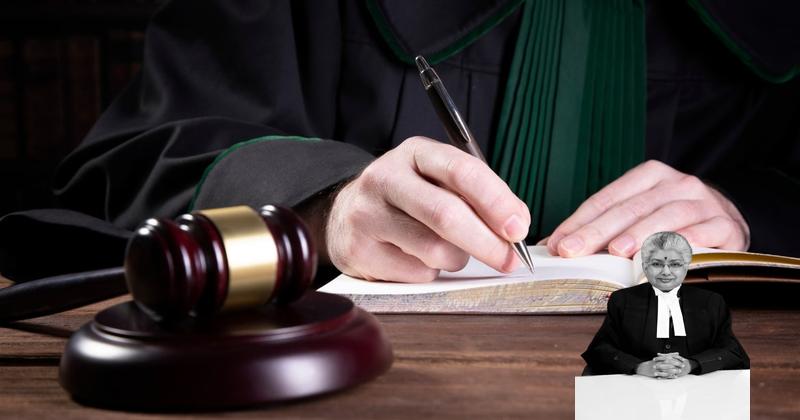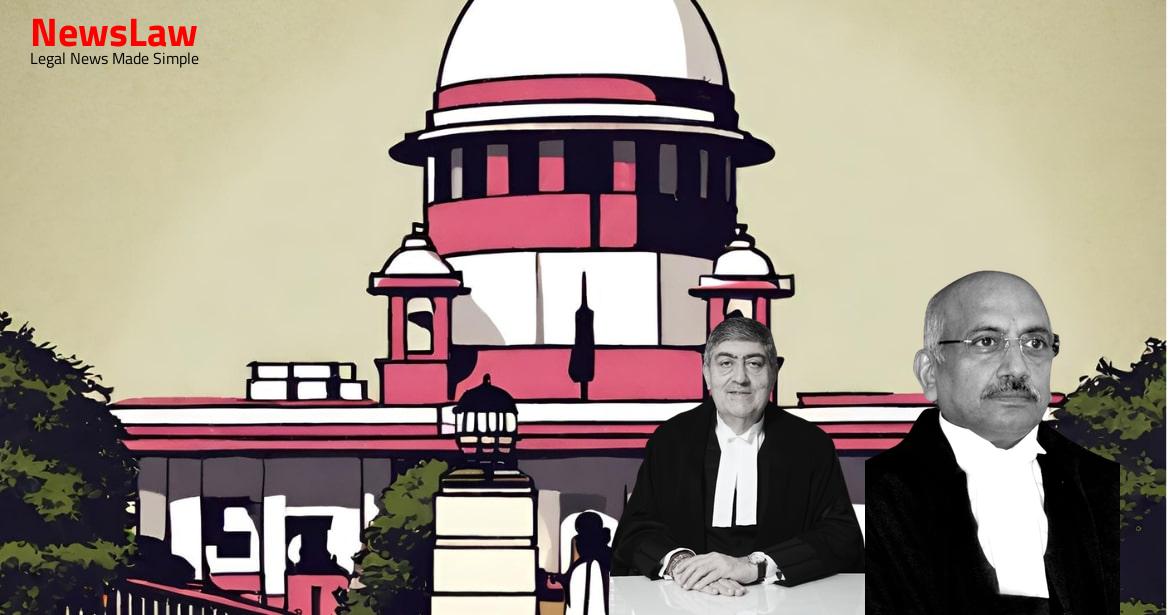In a significant legal battle over land rights, the Supreme Court has rendered its decision on the appeals filed by Shiv Dayal and Kasturi Devi. The case involves a dispute over mining operations on the suit land, with the State authorities contesting the plaintiffs’ claims. After a series of appeals and dismissals, the Court has now remanded the case to the High Court for fresh consideration. Stay updated on the latest developments in this complex legal saga!
Facts
- The State contested the suit by denying the averments made in the plaint.
- The plaintiff claimed a relief of grant of permanent injunction to carry out mining operations on the suit land.
- The plaintiff averred that the suit land was not part of any protected forest area as claimed by the State authorities but was a part of Revenue area.
- Since the suit land did not fall in the protected forest area, the plaintiff claimed the right to carry out mining operations without interference from the State and its authorities.
- First Appellate Court dismissed the appeal and affirmed Trial Court’s decree
- State filed second appeals in the High Court
- High Court dismissed the second appeals stating lack of substantial questions of law
- Supreme Court allowed the appeals, set aside the order, and remanded the case to High Court
- Case remanded due to involvement of substantial questions of law in second appeals
Also Read: Supreme Court Judgement: Settlement of Dispute after Lok Adalat Award
Issue
- High Court dismissed the State’s second appeals stating they did not involve any substantial question of law.
- The main issue is whether the High Court was correct in this dismissal.
- The present appeals before the Court are regarding the High Court’s decision on the State’s second appeals.
Also Read: Land Dispute Resolution: Supreme Court’s Decision on Order 7 Rule 11 Application
Analysis
- The Appellate Court has the jurisdiction to appreciate evidence de novo and can either affirm or reverse the finding of the Trial Court.
- Concurrent finding of fact binds the High Court in a second appeal.
- The High Court dismissed second appeals based on suit decrees by two Courts, which was deemed incorrect.
- The case is remanded to the High Court for fresh consideration after the death of Shiv Dayal during the appeals.
- Proper substantial questions of law should be framed in consideration of Forest Laws, MMRD Act, and State Revenue Laws.
- Concurrent finding of two Courts does not make the finding unassailable in a second appeal.
- The suit should address if any Forest Laws, MMRD Act, or Revenue Laws provisions are violated.
- Relevant laws and evidence must be considered to constitute a substantial question of law.
- Key questions for consideration include the land’s legality as Forest land, Revenue land, and for mining leases.
- The principles in T.N. Godawaran vs U.O.I. cannot be enforced in this appeal.
- The specific principles mentioned in the case cannot be relied upon in this context.
- When any concurrent finding of fact is challenged in second appeal, the appellant can argue that it is legally flawed
- The challenge can be based on factors like being outside the pleadings, lack of evidence, misinterpretation of documentary evidence, contravention of law, or being an unreasonable decision
- The appellant can assert that the decision is one that no judge acting judicially could have reasonably arrived at
- The High Court should have admitted the second appeal by framing appropriate substantial questions of law and answering them on their merits.
- Interference in the impugned order is necessary for the High Court to decide the controversy correctly.
- The appeals filed against Shiv Dayal succeed and are allowed for the four reasons mentioned in the judgment.
Also Read: Manoj Murder Case: Supreme Court Overturns High Court’s Order on Bail for Accused Persons
Decision
- The impugned order is set aside.
- All three suits/appeals filed by Shiv Dayal and Kasturi Devi were clubbed together for their analogous disposal.
- If one legal representative of the deceased is already on record, the appeal would not abate.
- Consequential steps to bring remaining legal representatives of the deceased on record can be taken before the High Court in pending appeals.
- High Court is requested to expedite the hearing of the appeals, preferably within 6 months.
Case Title: STATE OF RAJASTHAN Vs. SHIV DAYAL
Case Number: C.A. No.-007363-007363 / 2000



